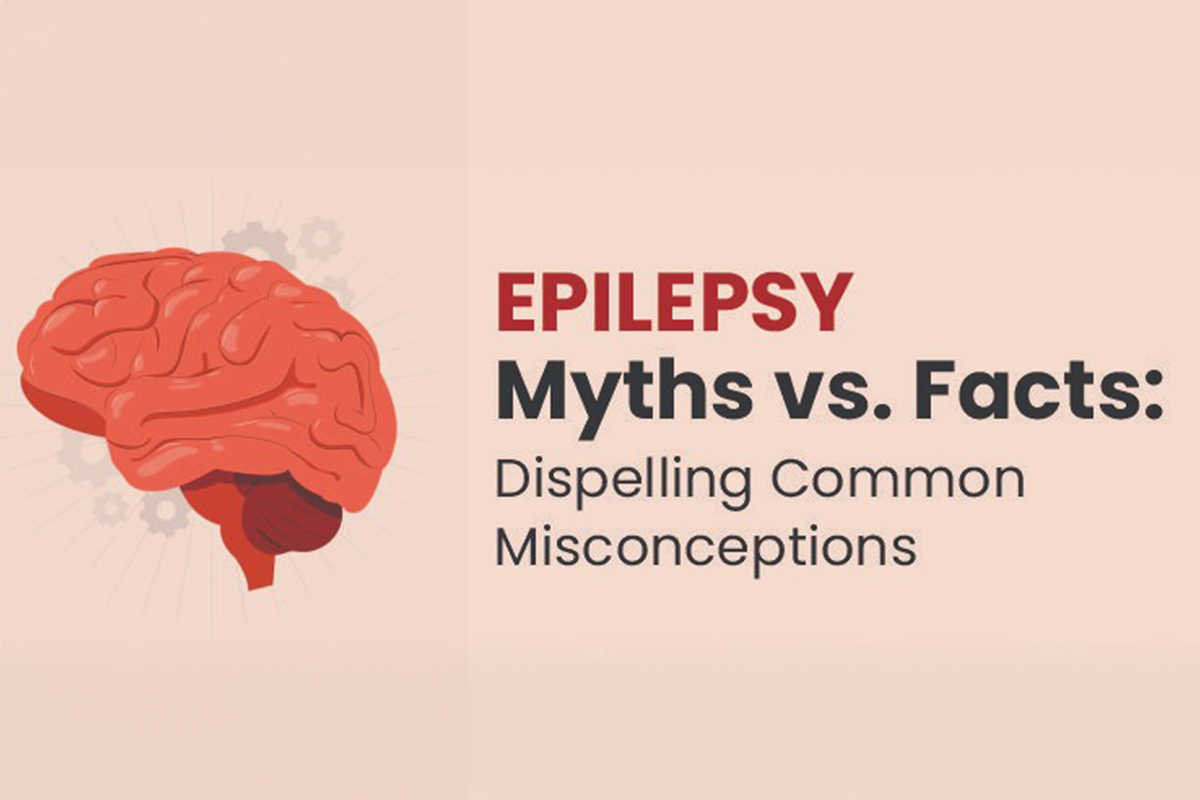
Epilepsy Myths vs. Facts: Dispelling Common Misconceptions
By in Neurosciences
Nov 20, 2023
Epilepsy is a neurological disorder characterized by recurrent, unprovoked seizures. Despite its prevalence, there are many misconceptions and myths surrounding epilepsy that contribute to stigma and misunderstandings. It’s crucial to dispel these myths to foster a more supportive and informed community. Let’s explore some common epilepsy myths and the corresponding facts.
Myth 1: Epilepsy is a Mental Illness
Fact: Epilepsy is a neurological disorder characterized by recurrent seizures. While seizures can sometimes affect a person’s behavior or cognition during their occurrence, epilepsy itself is not a mental illness. It involves abnormal brain activity that leads to seizures.
Myth 2: Epilepsy is Rare
Fact: Epilepsy is more common than many people realize. More than 50 million people have Epilepsy, making it one of the most prevalent neurological disorders worldwide. People of all ages, genders, and backgrounds can develop epilepsy.
Also Read: International Epilepsy Day
Myth 3: All Seizures Look the Same
Fact: Seizures manifest differently for each individual. While some experience convulsions, others may exhibit staring spells, subtle movements, or altered consciousness. Understanding the diverse presentations of seizures is crucial to recognizing and responding effectively.
Myth 4: Epilepsy is Always Genetic
Fact: While genetics can play a role, epilepsy can result from various factors, including brain injury, infections, tumors, or developmental issues. In many cases, the cause remains unknown (idiopathic). Genetic predisposition accounts for a fraction of epilepsy cases.
Myth 5: People with Epilepsy Are Mentally Impaired
Fact: Epilepsy doesn’t necessarily affect intelligence. Many individuals with epilepsy lead normal, fulfilling lives, pursuing education, careers, and relationships. Intellectual abilities vary among people with epilepsy, just as they do in the general population.
Myth 6: Swallowing Your Tongue During a Seizure
Fact: It’s physically impossible to swallow your tongue during a seizure. The best response is to help the person by turning them onto their side to maintain an open airway and placing something soft under their head.
Also Watch: Unmasking Epilepsy Myths: Expert Insights with Dr. Sonia Lal Gupta
Myth 7: Seizures Are Always Medical Emergencies
Fact: While some seizures require immediate medical attention, not all are emergencies. Some seizures are brief and self-limiting. However, if a seizure lasts more than five minutes, is followed by another seizure, or if the person is injured during the episode, seeking medical help is crucial.
Myth 8: Epilepsy Can’t Be Treated
Fact: Many people with epilepsy can manage their condition with medication, lifestyle modifications, or surgical interventions. Not all individuals with epilepsy require lifelong treatment, and advancements in medical science continue to provide new therapeutic options.
Myth 9: Epileptic Women Can’t Have Healthy Pregnancies
Fact: With proper medical guidance, many women with epilepsy have healthy pregnancies. It’s essential to manage medication under medical supervision to balance seizure control with potential risks to the fetus.
Myth 10: You Should Force Something Into the Mouth of Someone Having a Seizure
Fact: Never attempt to put anything in the mouth of someone having a seizure. This can cause injury. Instead, ensure a safe environment, protect the person from harm, and let the seizure run its course.







